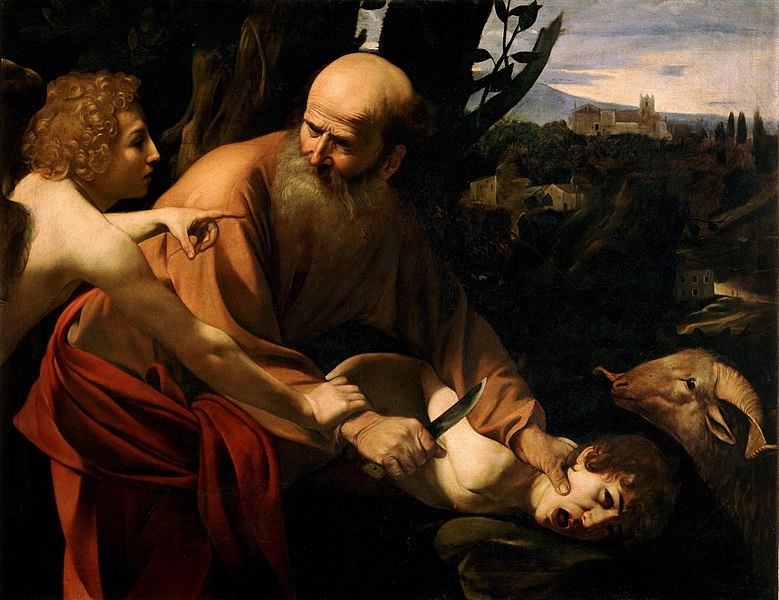Purpose of Akeidat Yitzchak
Introduction

A Test for Whom?
The story of Akeidat Yitzchak, in Bereshit 22, is one of the most famous narratives in Torah, and also one of the most troubling. The chapter opens with Hashem's command to sacrifice Yitzchak, proceeds to detail Avraham's dutiful compliance, and then climaxes with the angel preventing Avraham from carrying out the act. What, though, was the ultimate purpose of the entire experience?
From the outset, the text appears to define the episode as a "test" ("וְהָאֱ-לֹהִים נִסָּה אֶת אַבְרָהָם"). Furthermore, the declaration at the end of the trial, "Now I know that you are God-fearing" ("עַתָּה יָדַעְתִּי כִּי יְרֵא אֱ-לֹהִים אַתָּה"), would seem to support such a reading. Yet, if we grant that God is omniscient and was well aware of how committed Avraham was to Him, was there really any need for the traumatic experience of the Akeidah to ascertain the depth of Avraham's allegiance? Moreover, had Avraham not already demonstrated his dedication and loyalty to Hashem on multiple previous occasions? What prompted the need for an additional proof at this particular juncture, toward the end of Avraham's career? And if Hashem had no need for this test, for whom then was it intended? What lessons was it supposed to teach Avraham, Yitzchak, their society, or subsequent generations?
Can Hashem Go Back on His Word?
Many medieval commentators were troubled by an additional theological question: Is it possible that Hashem would retract a command? How can Hashem direct Avraham to sacrifice Yitzchak, only to subsequently instruct him to refrain from fulfilling this very order?1 Might this not pave the way for people to dismiss all Divine directives as being subject to change, or to suggest that the Torah is not eternally binding and that Hashem might replace it with a new one? This issue was particularly vexing for medieval Jewish exegetes living under Islamic dominion, as their Moslem interlocutors were wont to point to the Akeidah as an example of how God might revoke His commands or even abrogate the whole Torah.
Is Child Sacrifice not an Abomination?
While the above questions occupy the attention of earlier commentators, it is undoubtedly a third concern regarding the morality of the Divine command which most troubles modern sensibilities. While traces of this issue may be found already in Midrashic literature,2 it rarely engages most medieval exegetes, and it was only with the dawn of the modern era that it began to take center stage in most analyses of the story.3
Simply formulated, the question is: How can a just and ethical God, who later in the Torah denounces murder and the revolting practice of child sacrifice,4 demand of Avraham to kill his child? Furthermore, why did Avraham comply without even questioning the directive? Did it not behoove Avraham to, at the very least, protest as much as he did when Hashem revealed His plan to destroy the wicked inhabitants of Sedom?5 Or, in more general terms, the story of the Akeidah makes one wonder: What is the proper course of action when human conceptions of morality, or even the Torah's own ethical system, conflict with a Divine command?
Additional Questions
- "וַיְהִי אַחַר הַדְּבָרִים הָאֵלֶּה" – This opening phrase appears redundant, as the logical assumption of the reader is that a story follows the preceding one. Is the Torah highlighting the connection between Chapters 21 and 22? Does the former somehow shed light upon the latter?
- Avraham's feelings en route – The story is silent regarding the emotions of Avraham and Yitzchak as they trek to the mountain. Was Avraham filled with trepidation, or was his heart full of joy to be doing God's bidding? Does the text hint to one direction or another?
- "אֱ-לֹהִים יִרְאֶה לּוֹ הַשֶּׂה לְעֹלָה בְּנִי" – Is Avraham intentionally deceiving Yitzchak with these words? Do they stem from a desire to protect his son from the truth until the last moment, a fear that Yitzchak will not acquiesce, or his own hope that a sheep will yet be offered up to God in place of his son?
- Angel versus Hashem – Why is it Hashem Himself who gives the command to sacrifice Yitzchak in 22:1-2, while it is only an angel who prevents the act in 22:11-12?
- Recycled rewards? In the aftermath of the Akeidah (22:15-18), Hashem promises Avraham that his progeny will be blessed and numerous. But upon closer examination, it seems that this blessing only recycles the blessings Avraham had already received on numerous previous occasions (see Bereshit 12:2-3, 15:5, 17:4-6, 18:18). Did Avraham receive any additional recompense for his extreme devotion to Hashem at the Akeidah? "What if" Avraham had not been willing to sacrifice Yitzchak? Is it conceivable that he might have forfeited some of his blessings or even been punished?